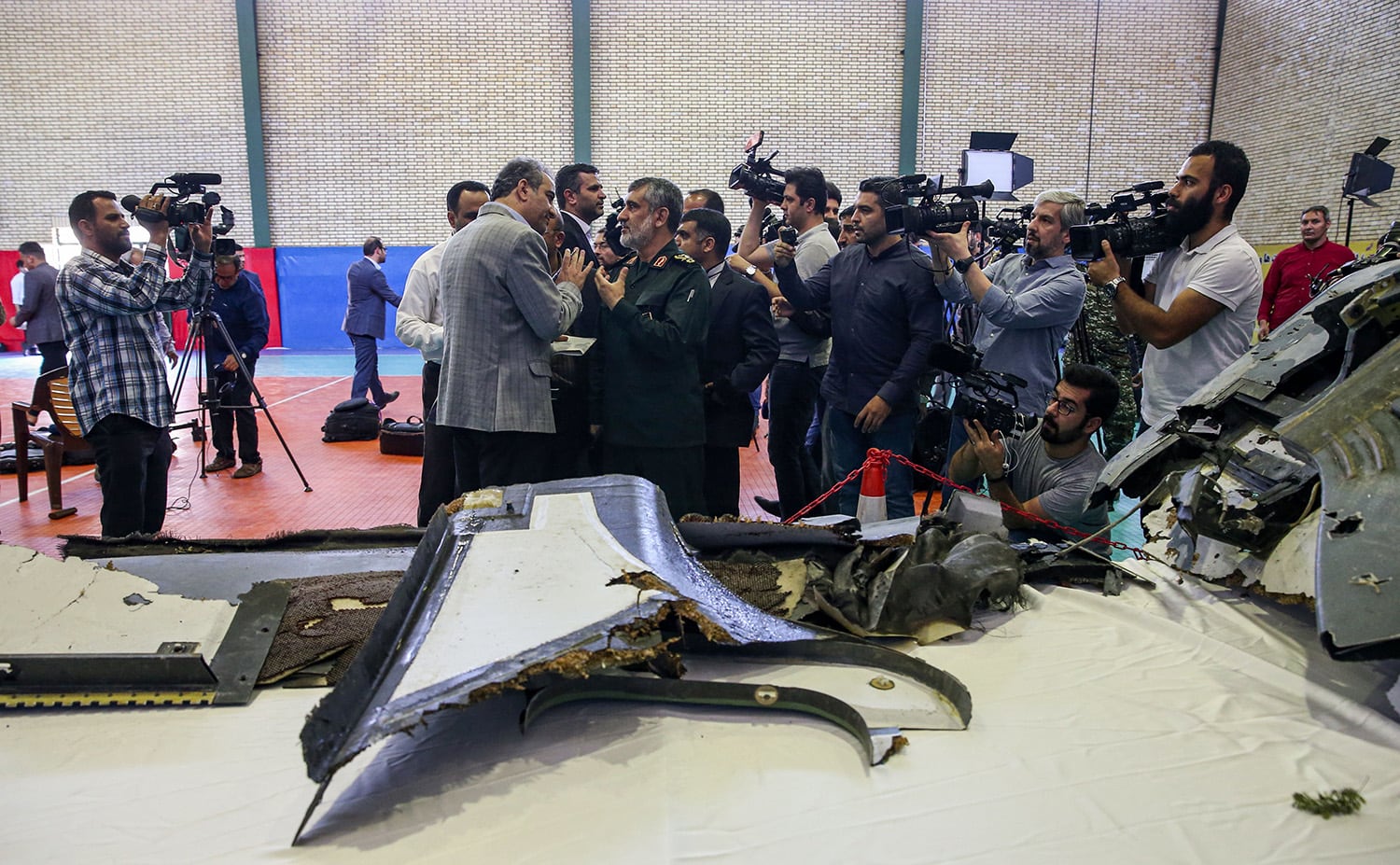WASHINGTON ― The Senate reached a bipartisan compromise Wednesday to let Democrats participating in the party’s first presidential primary debates in Miami this week vote on Iran, a Republican concession to clear the way for the massive 2020 National Defense Authorization Act.
Senate Majority Leader Mitch McConnell, R-Ky., announced the framework for the deal Wednesday, ending a partisan standoff with Democrats who had threatened to deny McConnell the votes to close debate on the NDAA before the weeklong July 4 recess.
McConnell did not immediately announce a time for the NDAA vote but said he plans to wrap up the bill this week. Lawmakers have arranged the cloture and final passage votes for Thursday―before a rare daylong vote Friday on whether the president needs congressional approval before starting a war with Iran.
RELATED

The amendment ― co-sponsored by Democratic Sens. Tom Udall of New Mexico and Tim Kaine of Virginia and backed by Republican Sens. Rand Paul of Kentucky and Mike Lee of Utah ― would require the approval of Congress for the use of military force against Iran. The president would be allowed to use force without Congress’s express approval in the event of an attack on the U.S., its territories or possessions, or its armed forces.
“Congress ducking this debate, and this vote, should never be an option ― not when a war with Iran would fall on the shoulders of our men and women in uniform and their families,” Udall and Kaine said in a joint statement after McConnell’s announcement. “All members of Congress should be on the record about war. When we vote on this measure, we hope our colleagues will stand up to prevent an unnecessary, unauthorized war that the American people do not support.”
McConnell reached the agreement, he said, after “extensive discussions” with Senate Minority Leader Chuck Schumer, D-N.Y. Schumer and other Democrats were urging the vote be moved after the debates, to be held at 9 p.m. on Wednesday and Thursday, to accommodate the schedules of the Senate’s seven candidates for the Democratic primary.
The vote would be rare both because it will be held open all day and because it breaks with recent precedent of sidelining potentially controversial issues. McConnell himself has opposed the Iran amendment because he thinks it would undermine the president in the midst of a crisis with Tehran and that it limits the administration’s options.
“To be clear, obviously I believe the Udall amendment can and should be defeated,” McConnell said. “I hope with the resounding vote in the Senate, we should put this issue to rest before we break for the Fourth of July recess.”
The House is expected to include similar language when it debates its version of the bill next month. But the Senate is not expected to adopt the amendment, which would make it an issue for conference negotiators.
In the run up to the compromise, Democrats said it’s important to show bipartisan opposition to what they see as a scattershot approach from the Trump administration that risks a disastrous war.
“Of course the president can act to defend American troops if attacked, but I think it’s important that we get every senator on record on whether or not they’re satisfied that President Trump has a clear strategy, has a compelling national interest and has an exit strategy for a potential conflict with Iran,” Sen. Chris Coons, D-Del., said in a CNN interview Wednesday.
McConnell and other Republicans wanted to move the NDAA quickly and accused Democrats for putting politics ahead of national security or the Senate’s business.
“We don’t see any reason to sit around and wait on them,” Sen. John Cornyn, R-Texas, said Wednesday of Senate Democrats. “So we can get our work done, [McConnell’s] offered a vote on the Iran amendment. I don’t believe it will pass.”
Senate Armed Services Committee Chairman Jim Inhofe, R-Okla., was keen to move on with the bill. Before the compromise was announced, he told reporters he would favor a quick vote on the NDAA and a separate vote on Iran later.
“I just want to disassociate it with the NDAA,” Inhofe said. “What happens is not always my preference.”
Joe Gould was the senior Pentagon reporter for Defense News, covering the intersection of national security policy, politics and the defense industry. He had previously served as Congress reporter.








